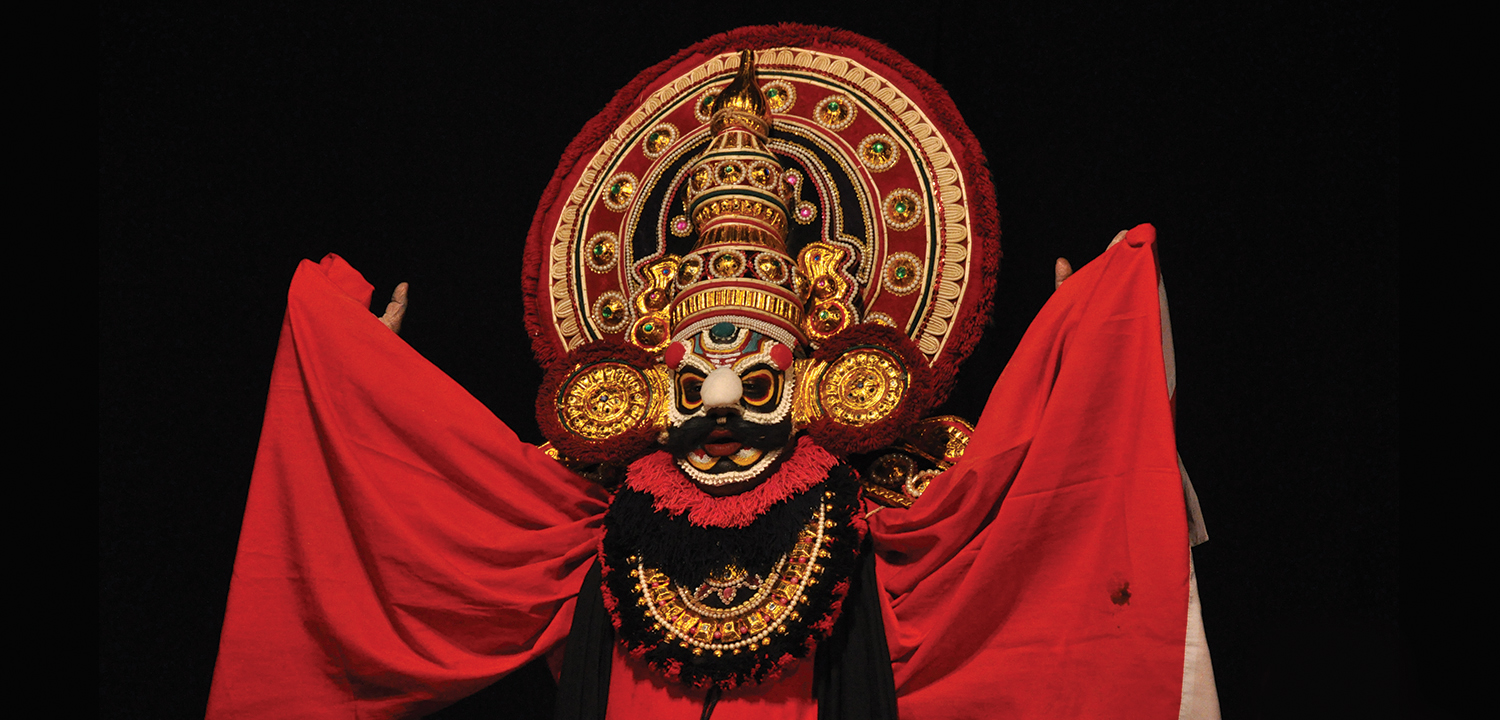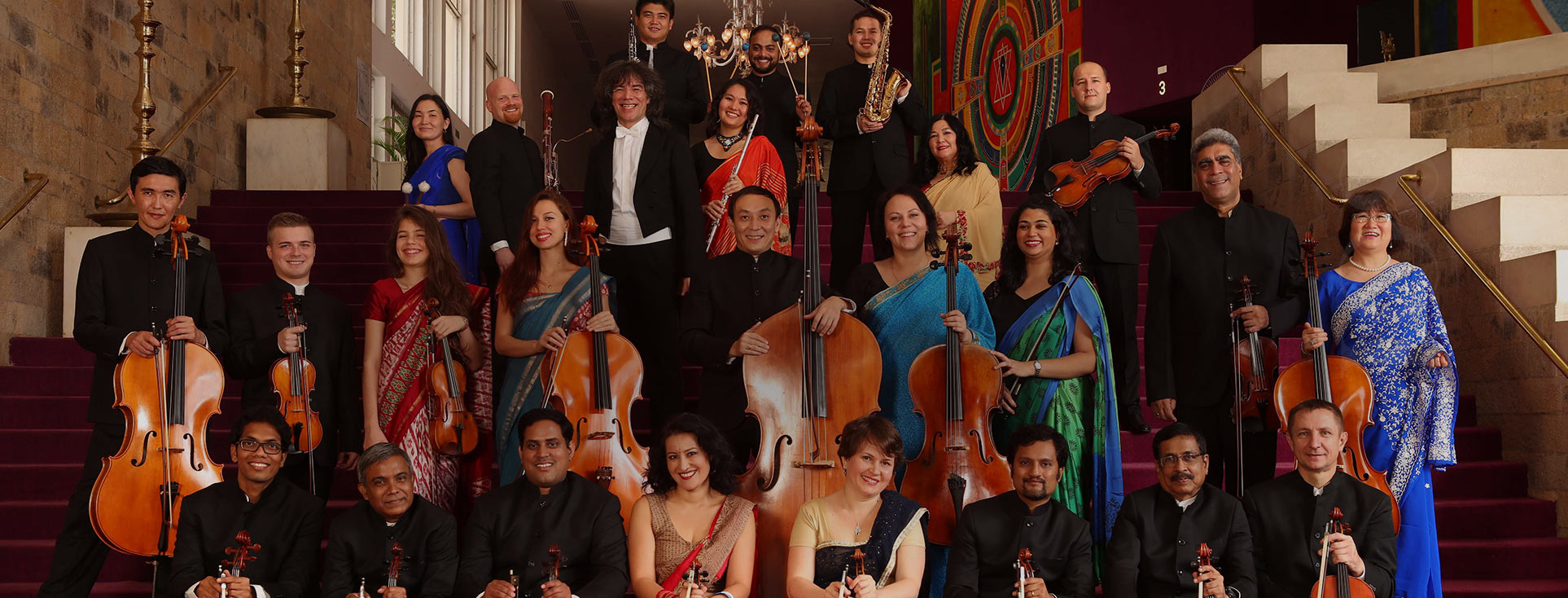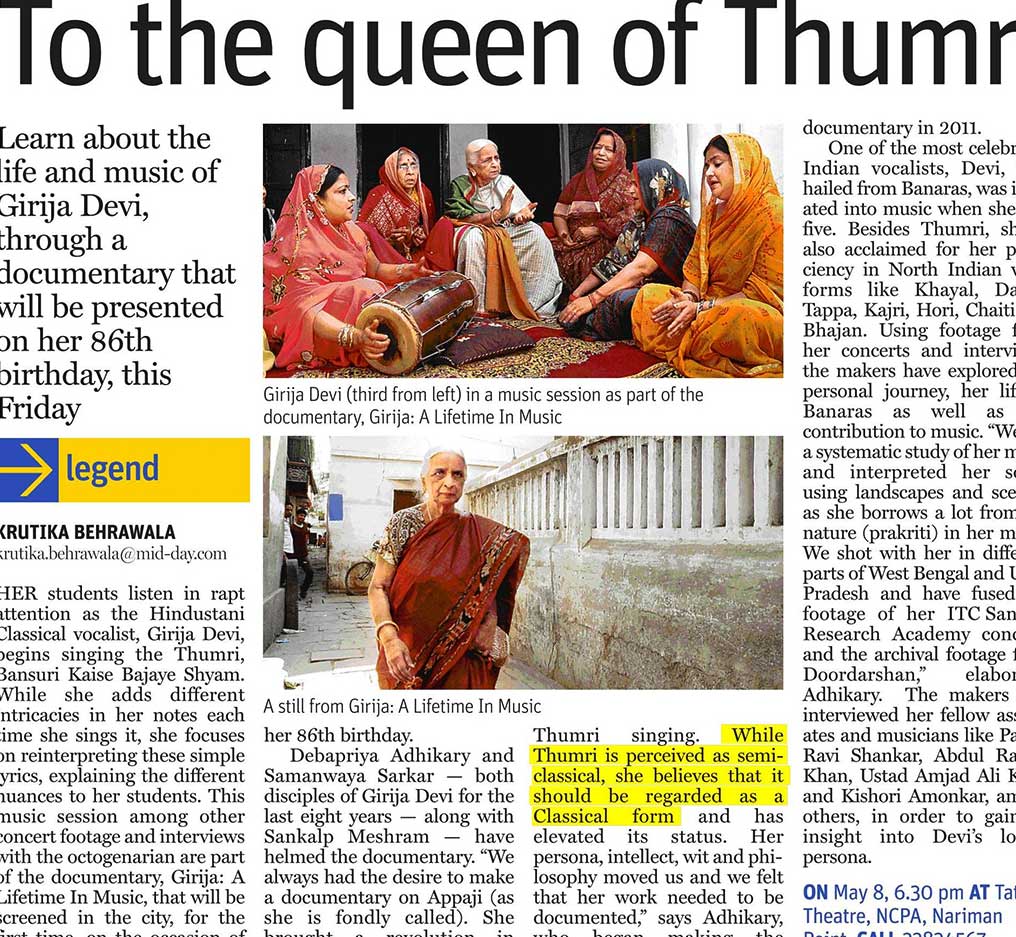-
Date Time
18 March 2018 - -
Member Price
Rs. 90/- -
Non Member Price
Rs. 100/-
Details
The song of the Yakshas: Yakshagana from Coastal Karnataka
Supported by Godrej Industries
In collaboration with Archives and Research Centre for Ethnomusicology, American Institute of Indian Studies, Delhi.
‘Living Traditions’ is our ongoing series showcasing folk traditions of different regions of India. This year the focus is on Yakshagana, a vibrant form of traditional theatre from the coastal Karnataka.
Patronised by temples, the origin of this ritual theatre can be traced to the period between the 11th to 15th centuries. Traditionally performed in the open air through the night by all-male troupes, Yakshagana performers wear elaborate headgear, facial make-up, colourful costumes and ornaments, all of which combine to give a superhuman appearance to the character presented. The themes of the plays are generally from the epics; Ramayana, Mahabharata and the Bhagavat Puranas. The music of Yakshagana, as well as the style of writing plays are specific to the genre. Even today, the tradition is alive and extremely popular, attracting new talent including women.
Over the two days, two wellknown troupes from Udupi will present the two main variants of Yakshagana. On each day, the performance will be preceded by a presentation by the well known Tulu and Kannada scholar Dr. Purushottam Bilimale, who is currently the Chair of Kannada Studies at the Jawaharlal Nehru University. His presentations will include archival footage from the 1930s from the Archives and Research Centre for Ethnomusicology.
Jatayu Moksha in Badagu tittu (Northern style)
by Yaksharanga
This tradition of Yakshagana is prevalent in North Canara (Uttara Kannada) and the northern parts of Dakshina Kannada District. Badagu tittu places more emphasis on facial expression and dances appropriate for the character depicted in the episode. Unlike in the Tenku tittu tradition, music is influenced by the Hindustani music.
Box Office now Open.


